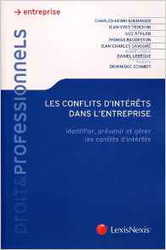Sectors
Feb. 4, 2018
Translated Summaries : Isolated Articles
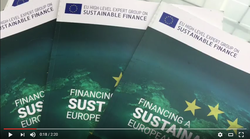
Jan. 18, 2018
Events : JoRC
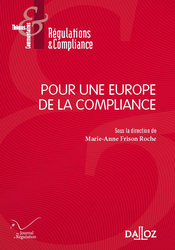
Theses conferences are in French.
Click on the French flag to read the presentation.
Dec. 20, 2017
Releases : I. Isolated Articles

Sept. 11, 2017
Breaking news
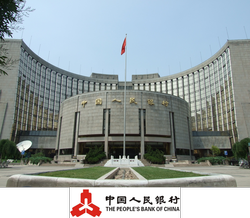
The nature of virtual currency remains uncertain. In any case, the object is very attractive, in particular because its nature, presented as "new", implies that its handling is not regulated.
This allows, in particular for individuals or start up, to issue "tokens" to offer them in exchange of funds, by the "initial coin offerings (ICOs)" technic, tokens acquired by investors, without being banking institutions, or borrowing money , nor issuing capital securities.
Operators demand that this behavior be recognized in its novelty and be recognized as being governed only by the contract and the general principles of loyalty, commitment and information, because what it is not prohibited is permitted while what is not regulated is freely organized by the parties who consent to it.
As media report, the Banking Regulator of China, has just decided otherwise. It has decided that the fundraising by individuals or companies by means of virtual currency will now be banned.
The question is whether other Regulatory Authorities could do the same.
Read below.
Sept. 6, 2017
Breaking news

Regulation of the digital world, we agree on its necessity, we talk about it a lot but it is difficult to do it.
The stakes are multiple: management of innovation, protection of people, treatment of different sorts of powers, future of the human being, the Politics and the Judge being like a bullet that ricochets between these 4 subjects.
It then rediscovers that the first "regulators" are the Governments and that the first modality of the Regulation Law is the taxation.
Notably in the digital field and even more so in the face of GAFA.
Indeed, the 4 American companies, Google, Apple, Facebook and Amazon, admit the need for rules but propose self-regulation or co-regulation. These would include not only their own behavior, but also those of others, including the fight against terrorism. Maybe, when one is stronger than the States, he should substitute himself for their core business....
Undoubtedly being dispossessed of the regalian, Europe today demands "accounts" to the GAFA in the literal sense of the term. Indeed, the French and German governments will table in September a tax proposal specific to the GAFA, the fruit of which will come back to the countries where they earn their income.
Concerned companies replied that in the tax system everyone has the right to be skilled and to organize at the best, so long as one does not fall into the abuse. In accordance with this legal conception, the French administrative high Court (Conseil d’État) has just recalled it in an important decision to their benefit.
In August 2017, the French Minister of Economy and Finance, Bruno Lemaire, justified the reiteration of his will to tax them, raising this issue at European level in the name of "distributive justice", the Law being defined as what gives everyone his share. This is a strong but dangerous argument, for while it is true that in the very function of taxation, correlated with public finances, the redistributive function is essential, tax optimization becomes staggering.
In a more convincing and regulatory way, this measure of equity is presented as correlated to the construction of the European digital market. It is an economic conception. To the extent that European taxation is still embryonic, its link with such a construction would make it possible to see in vivo the strength of the tax tool in Regulation Law, more than ever distant from Competition Law.
It is in this context, and because the European Digital Market must be built at forceps, since the GAFA will benefit from it, but also must participate in its construction, that such an investment sharing is justified.

Sept. 4, 2017
Breaking news

The Internet has created an area of freedom, even libertarian space.
The flood of words is sometimes hateful. Never mind. This would be the price of freedom: it corresponds to the project of those who conceived the Internet, the places of expression and creation, even the worst, and the political and legal culture of the United States, a system in which the freedom of expression has constitutional value.
This in particular allows for the development of ideas spreading so-called "neo-Nazi" thinking, as the Stormfront site has been doing for years.
On August 25, 2017, the private company, Network Solutions that hosts the site and provides it with the domain name terminated hosting and deleted the domain name.
The host also banned the web master from rebuilding the site or transferring it in any way.
This case gives rise to a debate on the rise of extremists in the United States on the one hand and the limit of freedom of expression on the other.
What is here to be noted is the power of a web host in the matter.
___
The manager who made the decision found it necessary to justify himself, as a Regulatory Authority would have done, giving grounds for a sanction decision, even though he can avail himself of the general conditions of use that are accepted by the entities that create and operate the sites.
Read more below.
June 15, 2017
Events : JoRC

Organised by the Journal of Regulation (JoR) in partnership with Sciences Po School of Public Affairs and Economics Department, under the scientific supervision of Marie-Anne Frison-Roche, economic law professeur at Sciences Po, director of the Journal of Regulation (JOR).
The sessions will be held at the Conseil Economique, Social et Environnemental (CESE). Each session, which will be held (in French) from 5pm to 7pm, will give the stage to a panel of 3 to 4 speakers and will be concluded by a Q&A session with the audience.
The sessions will be held for seven weeks in a row, from October 5th to November 30th, 2016.
Read the common question to all the sessions of the conference cycle (English translation coming soon)
In parallel, a book will be elaborated from these sessions.
It will be issued as part of the Régulations book series, published by Dalloz, which had already published the book Internet, espace d'interrégulation.
Read the detailed description of each session (French version only).
Jan. 19, 2017
Thesaurus
Jan. 2, 2017
Breaking news

Nov. 16, 2016
Events : JoRC


Nov. 3, 2016
Breaking news


Oct. 24, 2016
Breaking news
Sept. 3, 2016
Breaking news

The Basel Committee on banking supervision issues regularly a monitoring report on the implementation of Basel III regulatory reforms.
In August 2016, the seventh issue was published by the Committee as to be taken into account for the upcoming G20 meeting: Implementation of Basel standards. A report to G20 Leaders on implementation of the Basel III regulatory reforms.
In this report, the Committee mesures how national systems gradually implement the prudential reforms they have informally elaborated in common.
All the power derived from the Basel System stems indeed from the fact that it is concentrated; however, it still has to face a 'hard law' issue, as it is necessary to implement the reforms within the national systems in identical terms and in a constrained timeframe.
The Committee indicates in its reports that some countries still face a number of issues regarding this implementation, whether these issues arise from the rules themselves or from the transposition period that the countries are given to implement them. Those same countries tend to justify themselves by saying that banks are to blame for these issues, since they report having trouble adjusting their information system as to satisfy the new requirements.
The Committee underlines the fact that this delay occurs in some countries whereas others are already compliant creates a situation of unfair 'jurisdiction' competition between them, which is all the more concerning since these national systems host international banks: "Delayed implementation may have implications for the level playing field, and puts unnecessary pressure on jurisdictions that have implemented the standards based on the agreed timelines. A concurrent implementation of global standards is all the more important, as many jurisdictions serve as hosts to internationally active banks.".
In order to improve an effective implementation of the whole system, the Committee proposed to implement instead a calculus method that would be less complex: "These proposals would constrain banks’ use of internal models and would reduce the complexity of the regulatory framework.".
____
A few general observations can be drawn from this very specific Basel III issue underlined in the aforementioned report:
- soft law needs at some point to get concrete (which is closely monitored since the rules do need to be implemented), otherwise it is not law at all;
- it is through implementation that the weight and the contours of common rules are actually being felt;
- this situation is a good reminder of the fact that competing jurisdictions are an actual thing and a issue to deal with;
- what is an argument based of complexity, or even impossibility, of the technical implementation of a requirement worth?
This last question is crucial. Those who impose the requirement may consider that the non-enforcement for technical reasons cannot be accepted!footnote-68. Here, however, maybe since it is not a formal requirement as this is all soft law, and since there is a good communication between the supervisor and the executing agent (who is, at the same time, the one that is subject to the requirement, the one who elaborated it and the one who proposes to review it as to make it less complex).
Cass. R. Sunstein's last book was entitled Simpler. French Conseil d’État (French administrative supreme court) conducts thorough work on the quality of laws and on their simplicity, both qualities that probably go hand in hand. The Basel Committee steps in the same directions...
Aug. 1, 2016
Breaking news
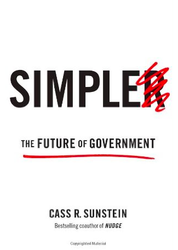
Cass R. Sunstein is a prominent Law & Economics teacher (first at the University of Chicago, then at Harvard). Not only has he written reference handbooks on Regulation, he was also the one who inspired the Regulation policies of Obama. In his 2013 book Simpler, he expresses his stance: to be better, public policies need to be simpler.
In this essay, Sunstein explores how behavorial economics might lead to improve public decision-making processes. He bases its stances upon his experience as the Administrator, from 2009 to 2012, of the US Office of Information and Regulatory Affairs; that is why anyone who cares about Regulation should read it and ask themselves if simplicity, as the author states, may or may not be an actual leading principle for an effective government.
The OIRA, under the supervision of the Office of Management and Budget placed within the Executive Office, reviews the draft Regulations that are prepared by the cabinets of various rulemaking agencies. In this view, the OIRA can be regarded as a sort of custodian of the quality of Regulation throughout the US; conversely to the mainly consultative functions granted to the Conseil d'Etat in France, the OIRA's opinions are binding. Hence, a draft project shall not be issued nor be enforced without its prior consent. Part of OIRA's defining mission is also to centralize all the information held by diverse people within the executive branch, as to enable its access and circulation between all the rulemaking agencies responsible for elaborating and producing binding regulations.
Simpler is dedicated to the detailed study of the main decisions taken under Sunstein's decisive influence by the OIRA in the Regulation field during Obama's first mandate (2009-2012). Before taking up government functions, Sunstein focused part of his academic work on the interactions that are the most likely to occur between behavioral economics, law and public policy. To him, "a general lesson is that small, inexpensive policy initiatives, informed by behavioral economics, can have big benefits" (p. 41). He namely provides that "without a massive reduction in its current functions, government can be far more effective, far less confusing, far less counterproductive, and far more helpful if it opts, wherever it can, for greater simplicity" (p. 11).
This reference to 'simplicity', from which the name of Sunstein's essay stems, aims at translating all the efforts done by public authorities, under the supervision of the OIRA, to issue rules that were clearer and more accessible than before and that provided their subjects (whether they are citizens, companies, or federal administrations) a greater freedom in the choices they were able to make.
Throughout his book and with a little help from the various situations he had to face during his term at the OIRA, Sunstein shows that there is a virtuous relationship between a better information of the agents (whether they are the authors or the subjects of the norms at stake), a greater simplicity in public decision-making process and a better quality of the regulations meilleure qualité de la réglementation in force in a State. This paper hence aims to sum up the main points of the essay (I.), before making a few comments about it (II.).
(See below)
July 23, 2016
Breaking news

On 20 July 2016, the Conseil Supérieur de l'Audiovisuel (CSA- French "Independant Authority to Protect Audiovisual Communications Freedom") issued a press release in which it directly addresses to its Turkish counterpart.
Read the 20 July 2016 press release from the CSA.
The press release is short. Here is what it says: "Le Conseil supérieur de l'audiovisuel exprime sa vive inquiétude à la suite de la décision du Conseil suprême de la radio et de la télévision (RTÜK), le régulateur des médias en Turquie, de retirer leurs droits d'émission à de nombreuses radios et télévisions. Le Conseil appelle son partenaire de longue date au sein de la Plateforme européenne des instances de régulation (EPRA) et du Réseau des institutions de régulation méditerranéennes (RIRM) à ne pas mettre en cause la liberté de communication et le pluralisme des médias, garanties fondamentales d'une société démocratique." (courtesy translation: "The Conseil supérieur de l'audiovisual expresses its deep concerns following the decision of the Supreme Council for Radio and Television (RTÜK), the Turkish Media Regulator, to withdraw the broadcasting rights of numerous radios and televisions. The Conseil calls upon its long-time partner within the European Platform of Regulatory Authorities (EPRA) and the Mediterranean Regulation Authorities Network (RIRM) not to jeopardize the freedom of communication and media pluralism, which are fundamental guarantees in a democratic society").
The press release is entitled "Le CSA s'inquiète du retrait par le régulateur turc des droits d'émission de radios et de télévision" (courtesy translation: "The CSA worries about the decision of the Turkish Regulator to withdraw broadcasting rights to radios and televisions").
____
Isn't this surprising?
One would understand that the members of a Regulatory Authority, just as many people, would worry about what has been happening lately in Turkey. One can also share the view that these events might cause them to fear for the sake of public liberties and democracy in the country.
Should a Regulatory Authority express its "worry" though?
Shouldn't it be the Government's role instead, within the framework of its 'diplomatic relations' with the state and with the use of an appropriate vocabulary, to express any 'worry'?
First of all, this is a salient example of the ambiguity of the Audiovisual Regulator. Indeed, while it itself insists on the fact that it acts as an economic regulator of a sector whose development and innovation falls under its watch and monitoring (which namely justifies the fact that he reviews candidacies to the presidency of public televisions channels), the Conseil Supérieur de l'Audiovisuel had initially been created to preserve public liberties.
As such, people who still embrace the distinction that was previously assumed between public liberties regulation and economic regulation still consider the CSA - along with the CNIL - as the prototype of the former type of regulatory body.
Here the CSA expresses its "deep concern" and sends a request not to "jeopardize liberties", which is the polite version of an injunction, to a foreign regulatory authority upon which it has no authority whatsoever.
One can understand that the Regulator develops soft law about operators on which he has actual authority. But what about here? Shouldn't the adage Nemo plus juris apply?
How is the Regulator competent to issue 'releases' in which he formulates desiderata towards a foreign body whose behavior is unappealing to him? Shouldn't the Quai d'Orsay (French Ministry for Foreign Affairs) be in charge?
The Regulator took a political stance here, while it is known that a Regulatory Authority can only be legitimate when it stands as a technical authority; emphasizing on the political features of its job actually jeopardizes this legitimacy, all the more when international politics are involved (which is the case here).
However, the Regulator does preempt criticism in its press release:
It starts indeed by stating that it only expresses this sort of 'feeling' because of the old ties that exists between the French and the Turkish Regulators: it essentially considers that friends can be true to one another, express a few criticism and expect changes. Friendship in the digital media and in politics would allow for many things.
Besides, the CSA recalls the solidarity that prevails between the two regulators. Because they are "long-time partner within the European Platform of Regulatory Authorities (EPRA) and the Mediterranean Regulation Authorities Network (RIRM)", the French Regulator is enabled to express the Turkish Regulators its view on how it is jeopardizing democracy and how it should consequently stop.
Maybe the many ties that exists between the Regulators now enable them to give more or less stringent advice to one another, whereas diplomatic embassies now play an increasing economic role: how blur do the lines get!
July 15, 2016
Breaking news
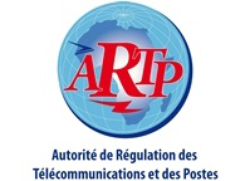
In Senegal, the Autorité de régulation des télécommunications et des postes (ARTP ; English translation: Telecommunications and Posts Regulatory Authority) has, just like all regulators, inherent powers to impose sanctions. In general, the important thing is not only to exercise this sanctioning power but to exercise it in a way that reinforces the authority of the Regulator. In this perspective, the new Sonatel sanction decision is important.
As a sanctions always carry a heavier weight when people are made aware of it, the Director General of the Artp issued a press release, that has been flagged as particularly important, and held a press conference (in French) on a particularly serious sanction imposed following what the Regulator considers as the non-fulfilment of obligations stemming from formal notices (which, by the way, the telecom operator challenges on the merits).
On 21 November 2014 indeed, the Sonatel was given a formal notice from the Artp to respect consumer rights. As the code of telecommunications provides since its modification in 2014, operators shall "prendre les mesures appropriées de dimensionnement de leurs réseaux de nature à garantir à leurs clients un accès ininterrompu à leur service client commercial ou technique en respectant un taux d’efficacité minimal" (translation: "take appropriate measures to size their networks in a way that provides their consumers with an uninterrupted access to their customer service (sales service and technical support) which would respect a minimum efficiency rate") set by the Regulator itself- as to, namely, ensure that the right of consumers to be informed is satisfied (as regards billing mechanisms) and that their calls to consumer services remain free of charge. As the Regulator estimated that the Sonatel was not complying with such regulations, it conducted a formal investigation and notified a statement of objections to the operator, before sending on 28 January 2015 a second formal notice for the same reasons.
On 14 July 2016, the Regulator imposed a sanction on Sonatel since the it still estimated that the operator's behavior still was not leading to a compliant situation as regards the consumer right to be informed. The sanction, as stated in the Sonatel decision, is 13 billion 959 million FCfa (c. €20m), i.e., 15% of Sonatel's 2015 turnover. The sanction decision also provides that if the operator does not enforce it, an additional penalty of 10m FCfa (c. €15,000) per day will be charged.
The operator, however, challenges this sanction insofar as it estimates that its behavior is not to be blamed. To support its claim, Sonatel avails itself from the fact that upon reception of the first formal notice, it undertook a 'progressive compliance' with the requirements process as regards its network, then let the Regulator know about it, etc. It is henceforth to lodge an appeal.
The issue at stake, therefore, is to know whether the obligations on operators are obligations regarding the means used (that is to say, means obligations), or, conversely, if they are obligations to produce results (performance obligations). If they are means obligations, then the operator is right. However, considering the efficiency and effectivity principes that are closely linked with the teleological nature of Regulation, it is more likely that such obligations are performance obligations.
For instance, in France, the Commission Informatiques et Libertés (French Data Protection Authority- CNIL) considered on 1 March 2016!footnote-42 that the obligations on operators to have accurate and complete data are performance obligations and not mere means obligations.
Thus, there is probably more to follow with this Sonatel decision. The day the press release was issued, the operator stated it intended to lodge a hierarchical appeal before the Minister.
The next day, the Director General of the Artp stated in the press (in French) that under the Senegal law, the appeal could only be lodged before a jurisdiction, or before... the Regulatory Authority itself (request for reconsideration - in French : "recours gracieux").
This situation is thus a great reminder that new illustrations of the interplays between Regulation and Politics can always be found.

July 4, 2016
Breaking news

Speaking to the press is a way for the Regulator to reach everyone, including policymakers, European institutions, and fellow Regulators who also seek to compete for space in the digital area.
As he reported: "Nous arrivons aujourd’hui, avec l'irruption du numérique, à un acte 2 de la régulation. Il y a 20 ans, on est passé du modèle PTT où l’Etat produisait le service public, au modèle d’État-régulateur qui a permis l’ouverture à la concurrence. Ce modèle vise à une bonne organisation du marché avec des outils de pilotage efficaces, mais parfois très intrusifs : les licences mobiles, qui sont des contrats assortis de sanctions administratives en cas de non-respect des obligations, ou le dégroupage, qui est une intervention sur la propriété privée… Aujourd’hui il nous faut franchir une étape nouvelle et nous projeter dans la suite, repenser nos outils pour permettre, en complément, une régulation plus focalisée, plus humble et plus agile". We can translate this passage as it follows : “As of today, considering the onset of digital, we are getting to a second phase for Regulation. Over the past 20 years, we went from the ‘PTT model’, where the State provided for public service, to a new Regulatory State model that enabled competition to thrive. This model aims for good market organization with effective management tools, which may be sometimes very intrusive: e.g., mobile licenses, which are agreements that include administrative penalties in the event of failure to comply with its provisions, or unbundled access, which relates to a State intervention on private ownership… Today, we need to take it another step further and plan for the future, reconsider our tools to allow for a Regulation that would be better focused, humbler and nimbler”.
Whatever “Phase 1” was would thus be already outpaced. Farewell stringent public service, so long market openings to competition. Such an understanding of Regulation was certainly consistent with the idea that Regulation was only meant to be temporary, namely considering the everlasting protection of personal data by the dedicated supervisory authority (Commission Nationale Informatique et Libertés, CNIL)…
We would then need to implement “Phase 2” and, as Sébastien Soriano advises, to “Regulate by the multitude”, which is "a concept that includes consumers, but also users, observers, and the civil society as a whole. The key question is how to use the power of information to get the greatest possible leverage on the market while relying on the multitude. The answer is clear: Regulation by data" ("La multitude, ce sont les utilisateurs, les observateurs, la société civile. Cela inclut les consommateurs, mais pas uniquement. Et la question centrale, c’est comment utiliser le pouvoir de l’information pour avoir un maximum d'effet de levier sur le marché et grâce à la multitude. La réponse, c’est la régulation par la data.").
Like all the others, the Telecom Regulator introduces himself as a sort of ‘natural’ Regulator for digital activities, as he relies on the key notion that is information. In doing so, he is seeking allies that are just as natural as he is— that is to say, consumers. Consumers fall indeed into the scope of the Regulator insofar as they provide him with the information he needs to Regulate the digital sector and space.
The Regulator thus does not define himself anymore as the one that protects consumers against the market, but as the one that binds the two together, transforming the complaint into a civic act: “There’s a problem. As a consumer, I am alerting you as a Regulator who has the means to regulate market failures and whom I shall let operate”.
In such a statement, the ARCEP not only becomes the ‘natural’ digital Regulator, but it also become the one that operates on the grounds of information brought by the web-user, who is protected by and who somehow benefits in return from the action of the Regulator.
Two concluding thoughts:
- What a nimble reasoning indeed from the Regulator, who had initially been created to be the ‘container Regulator’, and who is now becoming, since Phase 2 is on its way, a kind of ‘overall’ Regulator that regulates both the container and the content.
- This is a salient example that rationales and frameworks that were developed by the Banking and Financial Regulation are modelling Regulation in general: see whistleblowers, information, obsolescence of the ‘public service’.
June 24, 2016
Breaking news

The Autorité des Marchés Financiers (AMF- French Prudential Supervision Authority) set up a Scientific Advisory Board under the supervision of its president Gérard Rameix, who is also president of the AMF.
The Scientific Advisory Board chose ‘Financial education in the digital era’ as the theme of its annual conference, which was held on 20 June 2016 in partnership with Paris School of Economics.
The conference was opened by François Villeroy de Galhau, Governor of the Banque de France (France’s central bank). He stated that financial literacy “shall help everyone make informed decisions”. In this regard, financial literacy is a “factor for economic efficiency and social fairness”, which justifies involvement from public authorities- including, namely, the Banque de France. In partnership with both the Autorité de Contrôle Prudentiel et de Résolution (ACPR- French Prudential Supervision Authority) and the AMF, the Banque de France ought to be a “caring educator, but an attentive regulator”, as it is “imperative that financial literacy and Regulation should be taken forward jointly, as to allow for new technologies to develop, which would be understood by all and for the benefit of all”.
Three roundtables followed. The first roundtable aimed at assessing financial literacy trends and their impact on the financial behaviour of consumers and investors in Europe. The second session focused on the opportunities opened up by new technologies (upon which Fintechs, e.g., crowdfunding platforms, data aggregators and automated financial advice services are thriving) as regards financial behaviours. Lastly, the third panel discussion, which involved several French (AMF, Institut National de la Consommation- INC, French National Institute for Consumer Affairs) and European (European Commission) Regulators, draw conclusions from the first two roundtables and discussed on the issues that an increasingly digitalised financial education raises for Regulatory authorities.
Since this conference raises many crucial questions for Regulation, it is important to recall what has been said in the panel discussion on the role of Regulator with regards to financial education (I.) before sharing some thoughts on this matter of particular interest (II.).

June 22, 2016
Breaking news

It is sometimes argued that the competitive freedom will destroy the "old regulated world", platforms being the perfect example of this fresh wind, the invention of the adjective "disruptive" which could express a "novelty" before which it is only suitable to bow.
It would be therefore necessary to smile or even laugh, what would be a "rearguard battle" when the Conseil Constitutionnel (French Constitutional Council) in a decision of 22 May 2014 had limited the expansion of Uber, protecting the correspondingly monopoly holders of a municipal taxi license.
But in the US, cities adopt regulations. So on the next city council of the city of Chicago, will be proposed the vote of an order to compel the rideshare drivers.
In 2014, the French Constitutional Council justified its decision by referring to "the public order of parking", which the municipality is mistress... The justification given here is to protect the occupant.
Indeed all rideshare drivers will be obliged provide proof that they are subject to health checks, especially on drugs and provide criminel check also.
This is justified because Regulation of an activity implies control of those who exercise it and equal competitors can justify that for the same activity some are removed, especialy in view of the protection of the person transported.
The third new requirement is of a different nature: the driver must prove that it is not in debt to the municipality. Why not, since the infrastructure of the city allows them to exercise the economic activity in question. This is another underlying objective, which lies rather in the idea of an exchange between the city and the one who transports people, the beneficiary of infrastructure should not be otherwise debtor that it enjoys public infrastructure.
The latter provision shows that the "contract" is increasingly not between the carrier and transported - via the virtual platform - but between the very concrete public space and one that circulates and do not live there.

June 21, 2016
Breaking news


June 20, 2016
Breaking news

Little is known about how to ‘regulate the Internet’…
Outline solutions, however, do seem to have to be found in ex-post mechanisms since Regulation (broadly speaking) understand ex-ante and ex-post mechanisms as a continuum, and since Regulators increasingly concentrate ex-post mechanisms in their hands as an effective way to ensure execution of the ex-ante prescriptions they themselves elaborated.
Ex-ante mechanisms aim at making algorithms more ‘loyal’.
As long as we hope for devices to be trustworthy and to be held accountable for their ‘loyalty’, we give merits to the idea that we probably should “take liability seriously”.
On June 14, 2016, the Californian father of one of the victims of the 11/13/2015 Paris attacks filed a suit in a U.S. District Court to prosecute Google, Facebook and Twitter.
The legal dispute is clear.
The applicant based its claim to hold the companies liable on the grounds that they let terrorist groups use their networks: “The suit claims the companies “knowingly permitted” the Islamic State group, referred to in the complaint as “ISIS”, to recruit members, raise money and spread “extremist propaganda” via their social-media services”.
Conversely, the defendants unanimously claimed that they had actively implemented ‘policies’ against extremist material, and that they were working with law enforcement entities to improve regulations on the matter. Self-regulation and ethics versus common liability law.
The companies also pointed out the fact that they were not publishers, hence they could not face liability for the material users post on their networks. This is not, however, the issue at stake: the complaint concerns the use of the network not as a mere way to broadcast messages, but as a way to recruit murderers, provide them with convenient tools to communicate and to prepare criminal operations—allegations for which law does not exempt social media companies from liability.
These allegations are worth being ‘taken seriously’, should the law be unclear on whether the companies could be charged indeed, and should the total exemption from liability of such companies pleading for their ‘neutrality’ be the exception rather than the norm.
The question of principle is thus as follows: is exemption from liability of those who hold the ‘digital space’ together really the norm?
If so, their exemption from liability needs to be extended to a scenario that had not been covered by the law yet. If not, then common liability law is the rightful legal basis to assess whether the companies can be found liable or not—provided that a direct causal link between the unlawful act and an actual harm suffered by the applicant can be demonstrated.
The legal dispute is clear.
June 15, 2016
Thesaurus : Doctrine
